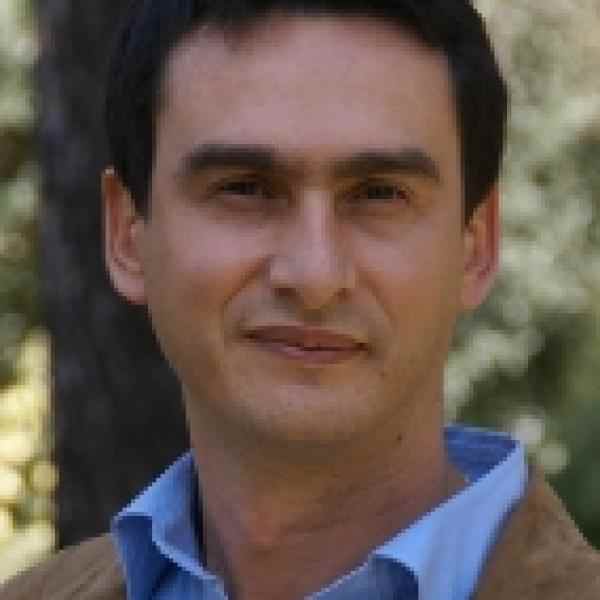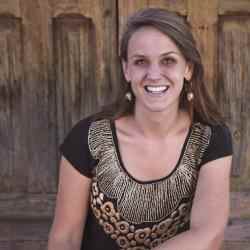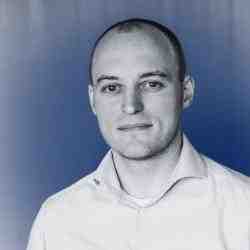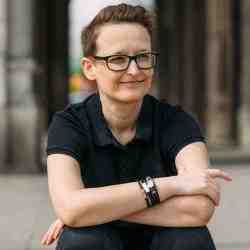Introduction
Jean-Loup Mouysset, trained as an oncologist, is revolutionizing the handling of chronic diseases by involving citizens in the process of follow-up and long-term support. The results of his pilot with cancer patients demonstrates the efficiency of his mindful community-based approach by influencing compliance to treatment, improving physical and psychological well-being, and reducing relapse and mortality rates. Drawing from a wide range of sources, Jean-Loup has created the continent’s first center of excellence focused on community support for chronic diseases.
The New Idea
Over the last few years the French medical system has made strides on research for chronic diseases such as cancer, but its patient treatment remains traditional, elitist, and closed-minded. Without focus on a holistic vision of disease, it denies a patient’s singularity and thus targets pathologies with standardized methodologies. This system has traditionally defined treatment as purely medical and limited to delivery by doctors. Jean-Loup’s systems-changing community model of handling chronic disease involves patients and citizens in the treatment process and creates a new ability for medical institutions to care for the patient as a unique person by providing a set of innovative and personalized treatments. Starting with cancer, Jean-Loup envisions a system of care where chemo- and radiotherapy are only two of many aspects of cancer treatment, and he is now providing patients with those missing elements.
Fully aware that improving compliance to and results of treatment entails dealing with every aspect of a patient’s life, Jean-Loup sets up working groups that systematically deal with psychological support, social counseling, or aesthetical and physical well-being. These communities of practice involve medical and non-medical specialists, social workers, psychologists, and families, and surround patients throughout and after their illnesses. Mutual aid expression groups where 10 to 12 patients share accomplishments, fears, solutions, and psychological support play a crucial role in providing patients with a strong community and network throughout illness. No longer isolated by their suffering, they become central actors in their healing, rather than passive observers of their diseases.
These communities not only improve the treatment of patients, but they also play a major role in transforming the medical system and shifting perceptions around chronic diseases. Jean-Loup is anchoring a movement of informed patients, professionals, and families that gives strength to his model by spreading the word and promoting it through unprecedented large-scale informational meetings (i.e. each with an average of 4,000 participants). Thus, beyond his first center, more and more empowered patients are beginning to request Jean-Loup’s innovative therapy. He is also spreading his model through trainings to volunteers and doctors and through implementing therapeutic centers in new regions. Jean-Loup envisions his community-based model as the new norm to tackle chronic disease.
The Problem
Chronic disease such as cancer afflicts societies in a unique way. Cancer has become the first cause of mortality in France, killing 12 people each day. To fight this “epidemic,” many researchers have experimented with innovative treatments, but none of their advances have been formally integrated into medical treatments. In 1990 Dr. David Spiegel, a well-known psychiatrist at Stanford University, observed that patients lived twice as long when they were treated with his psychological support methodology. Furthermore, Dr. Barbara Andersen from Ohio State University set up a new methodology of therapeutic education to explain the healing process to breast-cancer patients, and she managed to decrease relapse rates by 50 percent. There is growing evidence that taking care of the psychological well-being of patients has a positive influence on their recovery; however, to date in France, these types of psychological therapeutic approaches toward chronic disease remain outside the traditional medical system. While several medical departments provide sporadic, temporary, and scattered aesthetical care, the only psychological support legally implemented in France is a one-hour interview with a social worker at the beginning of chemotherapy.
In France cancer is still considered the “other” disease; many citizens believe cancer will never affect them in their lifetime, plus, it remains taboo and misunderstood as a disease. As a result, the traumatizing dimension for patients and their relatives is not being taken into account. Furthermore, the issue of life after cancer for recovered patients remains an untouched issue. There is no support for long-term physical and psychological trauma, heavy convalescence, and the high-risk of relapse. The lack of societal support leads to feelings of vulnerability and powerlessness at levels proportionate to the trauma undergone by war veterans or victims of natural disasters or rape. In the traditional one-to-one doctor-patient relationship, the suffering person is unable to understand the treatment and remains isolated in a passive recipient model. Instead, creating a community around the patient has been proven to help him/her fight isolation and loneliness.
The elitism and paternalism of the French medical system is anchored in traditional practices, and new therapies are hardly ever integrated. However, new therapies have long-term cost-saving benefits in terms of preventing relapse. With the cost of breast cancer relapse at 300M EUR per year, there is an urgent need to implement innovative treatment models that reduce the medical costs of handling chronic disease. Despite the fact that fighting cancer is now considered a national priority, after the French government launched the Plan Cancer 2009—2013, the government spent 150 times the amount of money for H1N1 treatment than it dedicated to cancer treatment. Overall, no significant efforts have been made by the government to improve treatments, in ways that are particularly innovative or cost-effective.
For the sustainability of the medical system, it is crucial to open up medical elites and decision-makers to new therapies. Beyond the case of cancer, newly appearing or poorly treated pathologies or disorders could benefit from such a shift in the medical field. One example is autism, which conceals a wide-range of poorly treated behavioral troubles. Another is Multiple Chemical Sensitivity (MCS), which concerns 4 percent of the population, however, individuals must go to the U.S. or Germany for treatment since the disease is untreatable in France. The need to set up an alternative framework to treat a spectrum of chronic diseases through a mindful approach is thus critical in a society where traditional medical treatment has shown to be insufficient for the well-being of the sick and ill.
The Strategy
To meet the needs of patients undergoing treatment or in convalescence from disease, Jean-Loup gathers a unique group of practitioners and specialists who provide a wide-range of care with a mixed psychological and physical therapy model. Jean-Loup’s association, Ressource, trains beauticians, experts in sophrology or reflexology, psychologists, social workers, occupational physicians, and other specialists to adapt their skills to the specific treatment of cancer patients. This diverse community has the capacity to answer the specific demands of patients coming to Ressource. Every aspect of patient suffering is dealt with to improve their well-being and thus their ability to undergo treatments or get through the rehabilitation process. The community is reinforced by the patients themselves: in addition to receiving treatment, every patient visiting Ressource gets involved in support and expression groups with ten other patients. These groups provide the space for patients, former patients, families, and relatives, to share accomplishments, fears, and solutions with one another.
Jean-Loup build upon experiments of support expression groups and therapeutic education developed by Drs. Spiegel and Andersen, who respectively demonstrated a 100 percent increase in patients’ life expectancy and a 50 percent decrease of relapse rate for breast cancer patients. Jean-Loup upgraded and complemented these innovative methodologies through an à la carte community-based model that has benefited 1,500 persons since 2003. More than 10,000 treatments have drastically improved the living conditions and healing time of patients. Reaching a greater number of patients, he is now planning to implement a multidimensional impact evaluation that extends beyond previous research. It focuses on new aspects of enhancement for a patient’s well-being, such as compliance to treatment, shifting to healthy lifestyles, and improvements in nutrition or stress management. Jean-Loup is thus driving a new integrative oncology in which chemo- and radiotherapy are only aspects of larger cancer treatment.
To give a concrete reality for the communities and reach the next step in implementing mindfulness in cancer treatment and the treatment of other chronic diseases, Jean-Loup has built a unique location to house the gathering of various actors and provide patients with diversified, innovative, and complementary care. In a non-medical center, which is easily accessible and therefore non-stigmatizing, a psychologist helps the patient work through a personalized one-year program. Each week for four months, then bimonthly over eight months, the patients come to the center to engage with experts in wellness treatments and social counseling. In the long-term, Jean-Loup plans to have in-patient treatments depending on the particular patient’s situation. These specialists support the patient according to the needs he/she defined together with the community of caregivers and psychologists. To overcome institutional and medical corporate barriers, Jean-Loup follows his vision and empowers patients as central actors of his model. Thanks to a viral strategy using social networks and meetings, he is structuring a community of patients that spreads the word: Patients are now asking physicians to include Ressource in their treatment.
Jean-Loup is using Ressource as a tool to support the organization of unprecedented international meetings welcoming doctors, patients, and families. In 2008 and 2009, he gathered more than 8,000 individuals for a series of “Another Look at Cancer” conferences, where the most famous specialists of cancer or other diseases (including Drs. David Servan-Schreiber, Lucien Israel, and David Spiegel) called for a new way to handle heavy chronic diseases. Jean-Loup thus creates conditions for doctors and patients to change their perceptions toward treatment, and he is asked to organize these conferences on a regular basis. Networking with foreign specialists on the topic in Canada, the U.K., Switzerland, and Germany, Jean-Loup has already identified existing leverages to replicate and spread his model outside of France.
Generating sustainable funding and changing health policy are also strategic elements for spreading the Ressource model. Jean-Loup targets individual donations to advertise around Ressource and is now approaching for laboratories both financial support and to build partnerships around new hybrid treatment methodologies. On top of that, he is demonstrating potential savings implied by his model, to attain funding from regional health agencies willing to adopt cheaper solutions and to implement a Ressource center per Health Territory. Jean-Loup also raises awareness among local and regional physicians unions to change practices and integrate new approaches in doctors’ training. Eventually, he is also broadening his concept by opening up his pilot center to other types of chronic diseases, such as MCS. Jean-Loup is thus creating a network of hubs to allow specialists and patients dealing with a wide spectrum of disease to mutually work on the better handling of chronic diseases.
The Person
Jean-Loup grew up in the South of France, exposed from a young age to the religious teachings of his parents. Engaged with the local parish, he participated in ecumenical summer camps led by a Jesuit organization throughout his youth years until becoming a camp supervisor when he was a teenager. Jean-Loup’s time and engagement with the organization allowed him to develop a great sense of teamwork and community spirit, as well as altruism and care. For some time, he wanted to become a priest, but finally chose medicine as the most efficient way to help suffering people.
At the beginning of Jean-Loup’s oncology career he understood his role as a doctor to pay more attention to the patient than the pathology. He began to read about Dr. David Spiegel’s work during his studies at medical school in France and fought hard to get funding from his university to attend one of the psychiatrist’s experiments on expression groups for cancer patients at Stanford University. As Damascus Road, this encounter helped him to build his own methodology to treat patients. Sensitive to other medical approaches, Jean-Loup sought training in various areas such as environmental bioscience, which helped him to understand the crucial role of the ecosystem around the patient and to implement a mindful vision of medical treatment. As a junior physician at the hospital La Timone in Marseille, his colleagues were impressed by his “medical rigor and commitment to the patients.”
Step by step, Jean-Loup developed his model and created the first community with people enduring or having endured cancer as the key players. He believes they will really transform the system, placing them at the center of a large-range of citizens and professionals. Jean-Loup structured his patient model by recruiting part of his staff among former sick people. Suffering patients thus benefit from a highly profitable added-value: Understanding.
Jean-Loup has always thought that demonstrating the efficiency of a model is the best strategy to convince and accelerate change. In a closed minded and traditional medical world that is slow to innovate, he has built a new kind of private not-for-profit hospital, as a unique organization in the field of medical handling structures. Today, the community-based model Jean-Loup has initiated goes beyond the projects he is directly carrying out, and has the potential to transform medical practices.




